ABOUT
THE GROUP
BRYSON CARE


BRYSON PATHWAYS
Our social enterprise trading company is:
BRYSON RECYCLING

BRYSON GOVERNANCE STRUCTURE
Each of the 4 companies have a Board of Trustees/Non-Executive Directors to provide strategic leadership and governance oversight. The Chairs of the 3 subsidiary company Boards form the Bryson Charitable Group Board and are joined on the Group Board by other individuals with specialist skills in areas such as commerce, finance, law, HR and public affairs.
The Bryson Charitable Group Board has three governance sub-committees:
- Audit & Risk
- Governance & Nominations
- Investment
LEADERSHIP
Bryson Charitable Group Board Trustees
- Paul Elliott, Chair
- Stephen Curragh, Hon. Treasurer
- Damien Hughes, Chair of Bryson Recycling
- Derek Baker, Chair of Bryson Energy
- Elias Joudeh
- Neasa Quigley
- Nuala Meier, Chair of Bryson Care
Bryson Care Board Trustees
- Nuala Meier, Chair
- Elias Joudeh
- Janet Robinson
- Noel Dick
- Siofra Healy
Bryson Energy Board Trustees
- Derek Baker, Chair
- Charlie Mack
- Jo Chada
- Philip Rainey
Bryson Recycling Non-Executive Directors
- Damian Hughes, Chair
- Deborah Sacks
- James McGee
- Peter Russell
- Richard Burnett
- Shane Logan
- Shane Logan, Chief Executive
- Joanne Neill, Director of Bryson Care
- Katy Fulton, Director of Bryson Recycling
- Moya Johnston, Chief Financial Officer
- Nigel Brady, Director of Bryson Energy
- Gordon Carson, Development Director
OUR HISTORY

The Beginning
1906-1909
Belfast Charity Organisation Society (BCOS), forerunner to Bryson Charitable Group is founded and begins operations from Donegall Square East. In the same year, around the corner, Belfast City Hall opens

Early Innovation in Tackling Social Issues
1910-1919
BCOS, in-keeping with its commitment to social innovation begins its 100-year collaboration with Queens University Belfast to train social workers. The decade when the Titanic was launched and lost and the First World War took place.
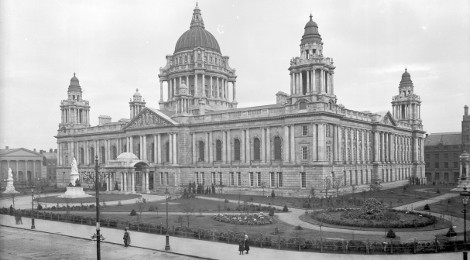
First Reshape to Meet Emerging Social Needs
1920-1929
BCOS evolves into The Belfast Council of Social Welfare (The Council), moves to new premises and develops the concept of a centre for social innovation to address the emerging post war welfare needs. The decade when the first Northern Ireland Parliament was formed, first meeting in Belfast City Hall
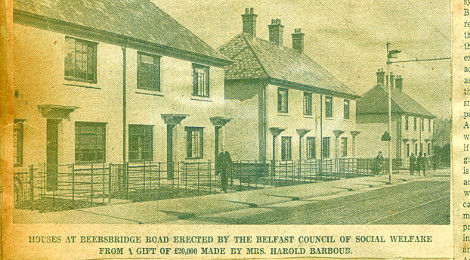
New Direction in Social Innovation
1930-1939
The Council pioneers the building of high quality social housing with an investment of £20,000 (equivalent to £1,274,000 in 2016) building properties in North, South and East Belfast. The decade in which the Second World War began.
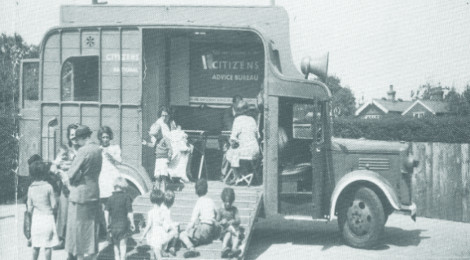
New Centre for Social Services
1940-1949
The Council establishes the first NI branch of the Citizens Advice Bureau and achieves its ambition to develop a centre for social innovation in the City by acquiring 28 Bedford Street – Bryson House. The decade in which Belfast experienced its own Blitz, but saw the end of the Second World War.
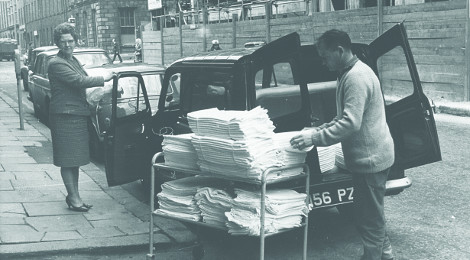
Leading the Way in Public Service Delivery
1950-1959
The Council develops Extra Care a Volunteer service to aid the “aged and lonely”, the forerunner to the statutory Home Help service. The decade that seen the festival of Britain and the formation of the European Economic Community.
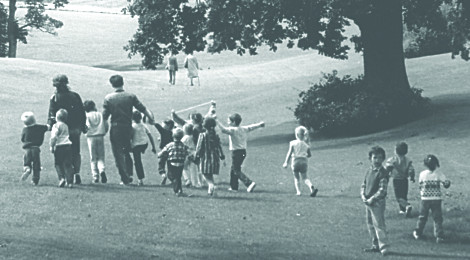
Pioneering Play Therapy
1960-1969
Concerned about urban housing conditions and its effect on children’s development, the Council pioneers the establishment of the City’s first Adventure Playground, based on a Scandinavian model. During this decade Neil Armstrong becomes the first Man to walk on the Moon
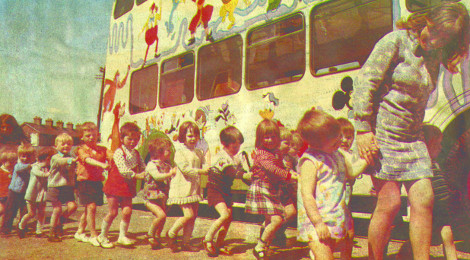
New Models of Social Innovation
1970-1979
The beginning of civil unrest in NI, the Charity played a lead role in developing and delivering services to victims. Its continued commitment to social innovation seen the development of NI’s first Playbus, and family support service; focused on building parenting skills. To avoid confusion with Belfast City Council, the Council changed its name to Belfast Voluntary Welfare Society (BVWS). During this decade Margaret Thatcher became Prime Minister in the UK.
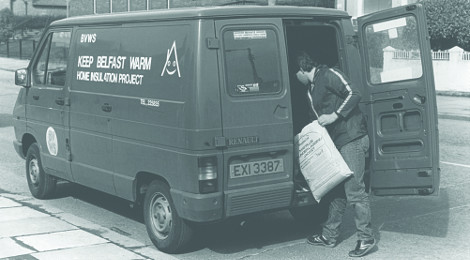
Growing Social Impact
1980-1989
The Charity changed its name to “Bryson House” to build brand awareness in a decade which saw its most prolific growth in social innovation, with the piloting and development of a range of new services, which included a series of community family centres; Keep Belfast Warm; Care and Home Repair for the Elderly; HomeStart; North City Training and many more.

New Business Model for Social Purpose
1990-1999
To build on the significant growth in service provision, in areas such as energy efficiency and recycling, Bryson develops an enterprising business model driven for social purpose and forms Bryson Enterprise Ltd as a wholly owned subsidiary trading company. During this decade the NI Good Friday Agreement is put in place and Bill Clinton wins USA Presidential election.
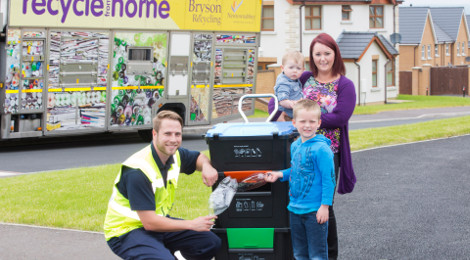
A Century of Social Innovation
2000-2009
In this decade Bryson celebrates its centenary; 100 years of social innovation and forms into Bryson Charitable Group to support and grow its 7 social business subsidiaries becoming NI’s first major social enterprise. In this decade, Belfast City Hall also celebrates its centenary year.
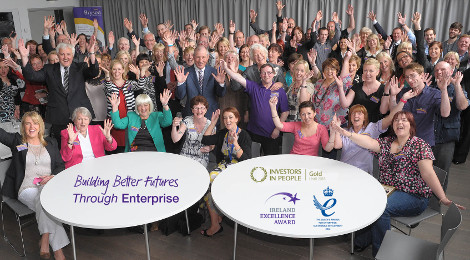
Growing Social Enterprise
2010
Bryson Charitable Group grows to over 600 staff and 120 volunteers, enters the top 100 SME’s in NI with turnover growing to over £30m, wins Queens Award for Enterprise: Sustainable Development and All Ireland Local Enterprise Award for delivering 24,000 services daily in NI, the Irish Republic and Wales.
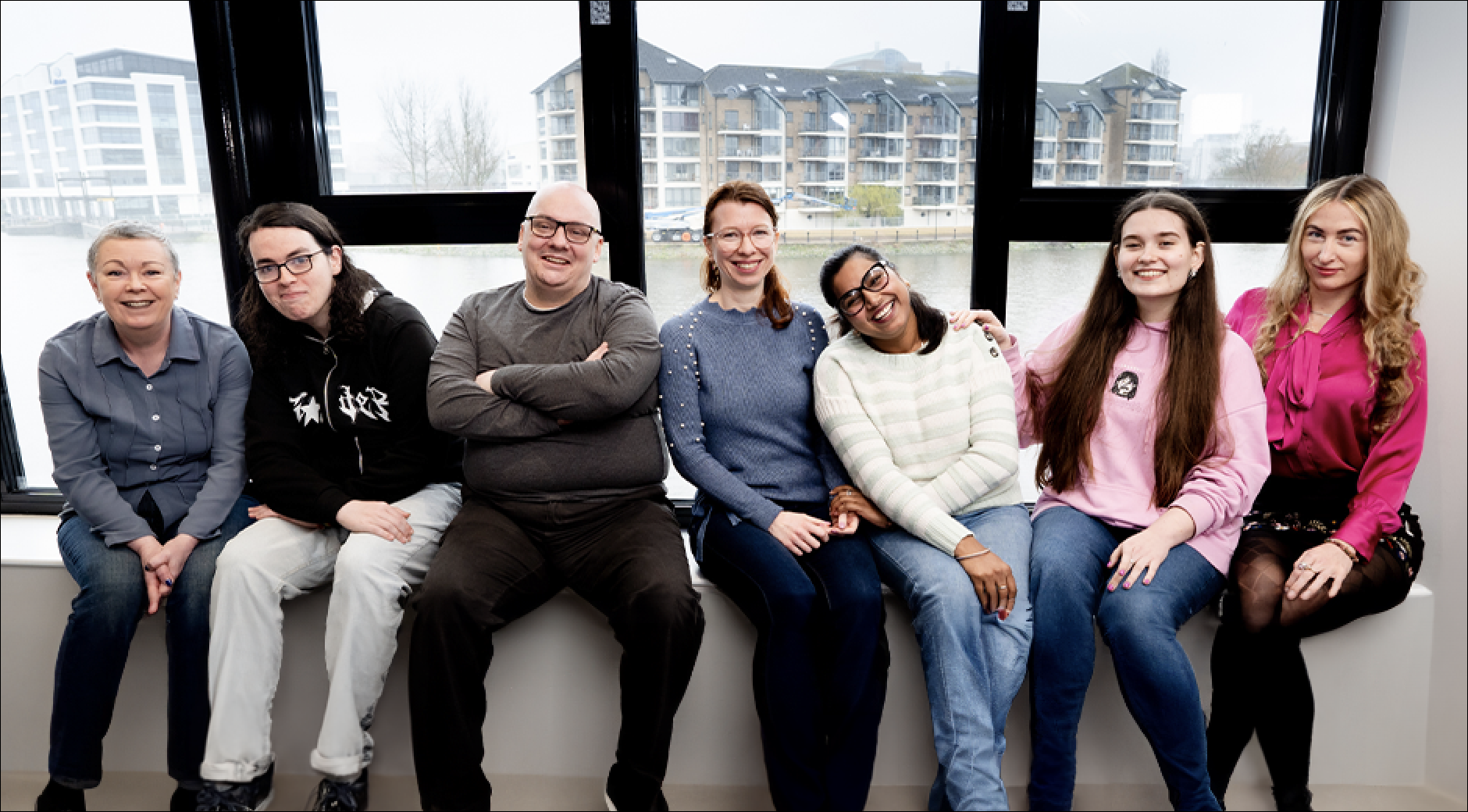
2020 Emergency Relief
2020
The world faced a global health crisis in 2020 with the onset of the COVID-19 pandemic. In response, Bryson created the Bryson Fund in April 2020 to support those on low-income who were severely impacted during lockdown with loss of earnings and facing increased heating and food costs, and the need for online connectivity to connect with essential services and schools. The Group invested around £650,000 of its own reserves and the Fund provided over 5,000 people with household energy top-ups, food vouchers, I.T. Equipment, and emotional support. Bryson continues to provide emergency relief today, supporting up 20,000 low-income households per annum.
